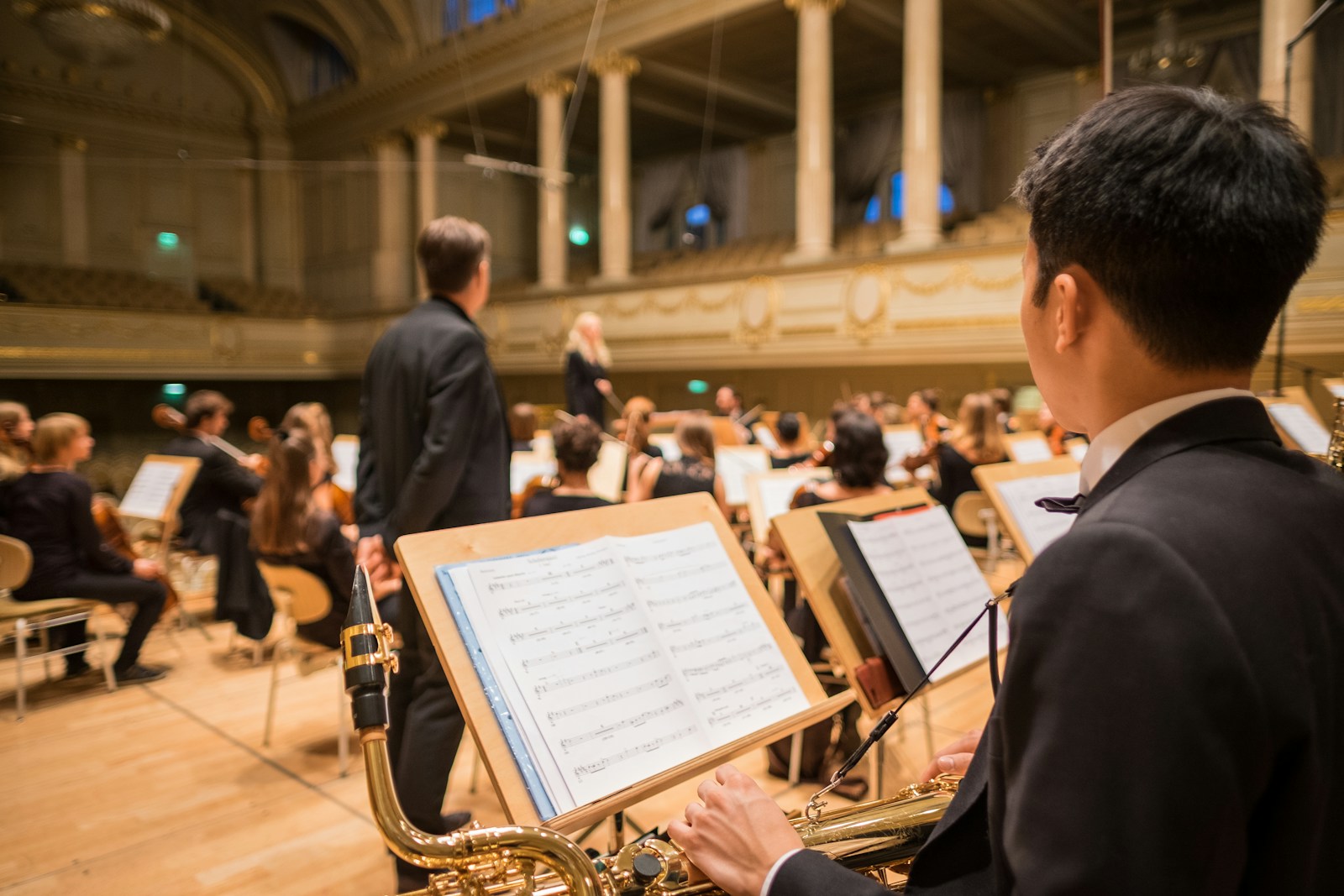Music festivals celebrate art, culture, and community, but attendee safety must be a top priority. Large crowds, outdoor settings, and intense excitement create unique safety challenges. Festival organizers must combine strategic planning, technology, and staff training to ensure security.
Focusing on crowd management, emergency preparedness, and hazard mitigation can maintain safety and fun. Safety can be guaranteed without compromising the festival experience by addressing issues like fire risks and potential accidents.
In this article, we’ll explore the best practices for ensuring music festival safety while preserving an unforgettable experience for attendees.
Effective Crowd Management Strategies
Crowd control is essential for ensuring safety at music festivals and preventing accidents or panic. Managing large groups requires careful planning to avoid overcrowding, which can lead to dangerous situations.
AP News reports that a tragic example of poor crowd management occurred at the 2021 Astroworld Festival in Houston. During the event, a stampede broke out, causing 10 deaths and many injuries. This incident highlighted the urgent need for proper crowd monitoring, clear communication, and well-organized emergency response.
Organizers must prioritize efficient crowd management by implementing clear strategies to ensure safety and prevent incidents. Key strategies include:
- Clear entry and exit points for smooth access
- Wide aisles to minimize crowding and facilitate movement
- Multiple stages to disperse attendees and avoid bottlenecks
- Real-time crowd monitoring using heat maps to identify potential issues
Security personnel should be deployed to manage crowd flow and prevent pushing or aggression. Proper signage directing attendees and emergency responders enhances safety and reduces risks during crowded moments.
Why is it important to manage festival exit points?
Managing exit points ensures a safe and orderly evacuation in emergencies. A clear and well-planned exit strategy prevents overcrowding during evacuations. This organized approach helps avoid panic and bottlenecks, ensuring all attendees can leave quickly if needed without risking injury or chaos.
Advanced Emergency Preparedness
Every music festival should have a comprehensive emergency plan covering medical services, evacuation, and communication strategies. The plan must be well-communicated to staff and volunteers before the event begins.
Medical stations should be strategically placed for easy access from all points of the festival. In addition to first aid kits, paramedics and trained personnel should be available for emergencies.
NIH notes that first aid stations provide immediate medical care, allowing patients to return to the event quickly. These stations vary, from tents to mobile vans or fixed facilities. For larger events, field hospitals offer more comprehensive care while mobile teams navigate the grounds, ensuring rapid response for emergencies.
Emergency drills should be conducted regularly to ensure readiness in crises. Festival-goers should be informed about emergency exits and protocols through clear signage and announcements. A quick, organized emergency response can significantly reduce risks and ensure safety.
What impact does emergency preparedness have on safety?
Properly planned emergency preparedness ensures a swift and coordinated response during crises. It reduces confusion, minimizes risks, and helps festivalgoers remain calm. An organized approach to emergencies can save lives and prevent injuries by keeping everyone informed and acting quickly.
Using Technology for Safety Monitoring
Technology plays a vital role in enhancing safety at music festivals through innovative tools and strategies. Wristbands or mobile apps with GPS tracking help organizers monitor attendee locations in large crowds.
These smart devices can send real-time updates about safety information, such as weather alerts or emergency evacuations. Drones equipped with cameras monitor crowd behavior from above, providing valuable insights to security teams on the ground.
Security Magazine states that crowd management has become a crucial need as venues operate on a 365-day model. Security professionals face challenges staffing events held daily in stadiums and arenas across industries. Using drones for crowd monitoring offers real-time surveillance to prevent accidents.
Surveillance systems with facial recognition and crowd density monitoring enhance security, allowing organizers to identify threats and respond quickly. Technology allows organizers to create a safer environment for all festival-goers.
What is the role of facial recognition at festivals?
Facial recognition technology improves security by recognizing people in huge crowds. It helps track potential threats, missing persons, or unauthorized individuals entering restricted areas. Using this technology, organizers can respond quickly to incidents and prevent security breaches.
Best Practices for Fire Prevention at Music Festivals
Fire hazards are a significant safety concern at music festivals, especially with pyrotechnics and open flames. Festival organizers must follow strict fire safety regulations to ensure that fire-related activities are properly monitored. For safety, fire extinguishers should be available in key areas like stages and food vendors.
Trained fire marshals should be on-site, prepared to handle potential fire emergencies quickly and effectively. However, it is crucial to avoid using certain types of fire-fighting foam, specifically AFFF (aqueous film-forming foam). It has been found to contain harmful chemicals like PFAS (per- and polyfluoroalkyl substances).
Lawsuits have been filed against the manufacturers of AFFF due to its harmful effects on human health and the environment.
The Widespread Legal Implications of AFFF
TruLaw emphasizes that over the years, thousands of PFAS lawsuits have been filed across the U.S. Individuals exposed to PFAS, whether through drinking contaminated water or work environments, have filed lawsuits. These lawsuits involve various health conditions, including cancer, liver damage, and developmental issues.
The latest update from the Lawsuit Information Center highlights that as of December 2024, 7,370 cases are pending in the AFFF foam lawsuit. Earlier this year, over 9,000 cases were pending in the multidistrict litigation. The recent decrease is due to the dismissal of water contamination cases covered by a settlement in August 2023.
Overall, the growing number of lawsuits surrounding AFFF highlights the importance of reviewing fire safety products.
What are the best alternatives to AFFF foam?
Non-toxic, PFAS-free fire-fighting foams are ideal alternatives to AFFF foam. These alternatives offer effective fire suppression without the harmful chemicals present in AFFF. Switching to these environmentally friendly products reduces health risks and legal liabilities related to harmful substances.
Preventing Substance Abuse and Overindulgence
Substance abuse is a concern at music festivals, with attendees sometimes attempting to bring illegal substances. Organizers can reduce this risk by conducting thorough security checks, using metal detectors, and screening bags.
On-site security staff should be trained to spot suspicious behavior and respond appropriately to potential substance issues. Providing ample water stations and promoting responsible alcohol consumption helps reduce incidents related to dehydration or alcohol poisoning.
Collaborating with local health organizations offers mental health services like counseling or support tents during the festival. This ensures that attendees can seek help if they feel overwhelmed or need assistance.
How does event security prevent substance abuse problems?
Event security can identify and address potential substance abuse issues by monitoring behavior and screening for drugs. Security personnel should be trained to spot signs of overconsumption or illegal substances. Early intervention by security teams helps prevent more serious problems from escalating at the event.
Music festivals offer an exciting experience, but safety must always be the top priority. Effective crowd management strategies help ensure smooth movement and prevent accidents in large crowds. Comprehensive emergency preparedness, including medical stations and clear communication, is essential for a safe festival environment.
Technology enhances monitoring through real-time updates and surveillance. Fire safety is crucial, with non-toxic alternatives to AFFF foam preventing harmful chemical exposure. Security measures, such as thorough checks and support services, address substance abuse risks and ensure attendee well-being.


